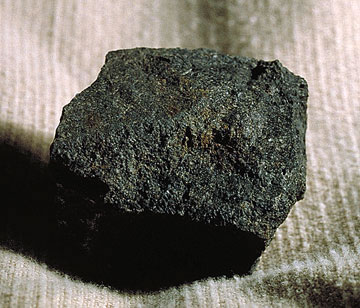 Those who decry benefits fraud in their own nations should look to the illustrious example of Italian “miner” Carlo Cani. His adventures in absconding from work over a period of 35 years (yes, years) would make a wonderful indie movie, and should be an inspiration to less ambitious slackers the world over.
Those who decry benefits fraud in their own nations should look to the illustrious example of Italian “miner” Carlo Cani. His adventures in absconding from work over a period of 35 years (yes, years) would make a wonderful indie movie, and should be an inspiration to less ambitious slackers the world over.
From the Telegraph:
An Italian coal miner’s confession that he is drawing a pension despite hardly ever putting in a day’s work over a 35-year career has underlined the country’s problem with benefit fraud and its dysfunctional pension system.
Carlo Cani started work as a miner in 1980 but soon found that he suffered from claustrophobia and hated being underground.
He started doing everything he could to avoid hacking away at the coal face, inventing an imaginative range of excuses for not venturing down the mine in Sardinia where he was employed.
He pretended to be suffering from amnesia and haemorrhoids, rubbed coal dust into his eyes to feign an infection and on occasion staggered around pretending to be drunk.
The miner, now aged 60, managed to accumulate years of sick leave, apparently with the help of compliant doctors, and was able to stay at home to indulge his passion for jazz.
He also spent extended periods of time at home on reduced pay when demand for coal from the mine dipped, under an Italian system known as “cassazione integrazione” in which employees are kept on the pay roll during periods of economic difficulty for their companies.
Despite his long periods of absence, he was still officially an employee of the mining company, Carbosulcis, and therefore eventually entitled to a pension.
“I invented everything – amnesia, pains, haemorrhoids, I used to lurch around as if I was drunk. I bumped my thumb on a wall and obviously you can’t work with a swollen thumb,” Mr Cani told La Stampa daily on Tuesday.
“Other times I would rub coal dust into my eyes. I just didn’t like the work – being a miner was not the job for me.”
But rather than find a different occupation, he managed to milk the system for 35 years, until retiring on a pension in 2006 at the age of just 52.
“I reached the pensionable age without hardly ever working. I hated being underground. “Right from the start, I had no affinity for coal.”
He said he had “respect” for his fellow miners, who had earned their pensions after “years of sweat and back-breaking work”, while he had mostly rested at home.
The case only came to light this week but has caused such a furore in Italy that Mr Cani is now refusing to take telephone calls.
He could not be contacted but another Carlo Cani, who is no relation but lives in the same area of southern Sardinia and has his number listed in the phone book, said: “People round here are absolutely furious about this – to think that someone could skive off work for so long and still get his pension. He even seems to be proud of that fact.
“It’s shameful. This is a poor region and there is no work. All the young people are leaving and moving to England and Germany.”
The former miner’s work-shy ways have caused indignation in a country in which youth unemployment is more than 40 per cent.
Read the entire story here.
Image: Bituminous coal. The type of coal not mined by retired “miner” Carlo Cani. Courtesy of Wikipedia.


